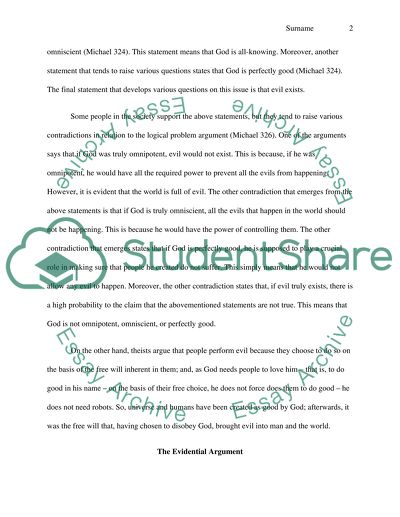Cite this document
(“Problem of Evil Essay Example | Topics and Well Written Essays - 1000 words”, n.d.)
Retrieved from https://studentshare.org/philosophy/1449543-philosophy-paper
Retrieved from https://studentshare.org/philosophy/1449543-philosophy-paper
(Problem of Evil Essay Example | Topics and Well Written Essays - 1000 Words)
https://studentshare.org/philosophy/1449543-philosophy-paper.
https://studentshare.org/philosophy/1449543-philosophy-paper.
“Problem of Evil Essay Example | Topics and Well Written Essays - 1000 Words”, n.d. https://studentshare.org/philosophy/1449543-philosophy-paper.


